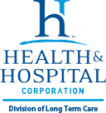Recommendations for Faith-Based Communities
Recommendations from Richard M. Fairbanks School of Public Health
1. Pursuant to Governor Holcomb’s order, all non-essential public gatherings should be limited to less than 250 people.
2. Make hand sanitizer with at least 60% alcohol available at all entrances to the church and create the expectation that everyone should use upon entering by posting a volunteer at the entrance to direct everyone to use the sanitizer.
3. Don’t shake hands or hug. Use alternative methods of greeting such as the elbow bump, foot bump, or covering your heart with a hand and bowing.
4. Wash hands prior to applying gloves. Consider using tongs to break and serve bread at communion. Place bread in gloved hands without touching the recipient directly with the serving utensil. Avoid putting bread/host directly into people’s mouths. Use single use cups for communion wine/juice – ensure those serving use hand sanitizer before and after serving and that individuals only touch their own elements.
5. Don’t pass offering plates. Consider placing buckets or pans that are stationary at entrances or exits for people to deposit their offering. Place envelopes in pews for people to mail in their offerings.
6. Food Fellowship Events: In serving line, no large open food containers.
7. Abstain from Baptism.
8. Ask people who are sick and/or coughing or sneezing to not attend service in person. Create online attendance options.
9. Educate people over 60 and those with underlying medical conditions about the increased risk to them should they develop a novel coronavirus 19 infection and offer online services for those who prefer not to attend in person. Provide at least 6 feet of distance between people especially those in vulnerable groups.
10. Disinfect every area that is likely touched: doorknobs and pulls, water fountains, restrooms, sinks, toilets and pew tops, etc. – clean between services. According to the CDC, diluted household bleach solutions, alcohol solutions with at least 70% alcohol, and most common EPA-registered household disinfectants should be effective. For more information, go to: https://www.cdc.gov/coronavirus/2019-ncov/community/home/cleaning-disinfection.html
12. If you can, remove hymnals and use projectors or individual copies of music and liturgy. Remind those attending the service to avoid touching their eyes, nose, mouth, and face, and to wash their hands with soap and warm water after leaving the service. Hand sanitizer is also an option if soap and water are not available.
Quick Navigation





